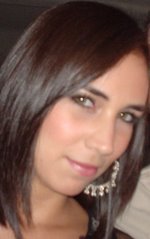EGBERT Ch. 5. Creativity and Productivity
RICHARDSON Ch. 4. Wikis: Easy Collaboration for All
Popular second language acquisition theories stress the importance of "comprehensible input." While most agree this is important, many others argue we also need to focus on output as well. What are some ideas you gained from the Egbert chapter about how technology can be used to encourage creativity and production? How does this help promote language learning? Share any experiences you've had with any of these or similar ideas in language learning classrooms. Finally, comment on the potential of Wikis to allow language learners to collaborate in creative and productive ways.
While reading the chapter, I gained a lot of ideas that will facilitate and support the creativity and production of our students. I will definitely develop my future lessons by integrating activities that will encourage to use their imagination to fabricate a meaningful product. Expanding their creativity, the students also develop their language process. For example, when I created a group presentation using a specific software and by producing something, it helps me as a ELL develop my language skills.
Wikis is a great free tool that teachers can use in their classroom to help and support their students production and creativity. It is a quick source of facilitating learning, and is easy to use. I would like the idea of building our own wiki- page, creating and editing sound like fun. The only concern that I can think of is that we need to teach our students to learn how to count and choose on reliable information in the Internet.
Monday, February 19, 2007
Subscribe to:
Post Comments (Atom)






2 comments:
Marisol,
I can see how Wikis can provide unreliable information; however, Wikis is only ONE source of info. Students should be using several sources of information and with proper teacher’s guidance while searching through Wikis, Wikis should be effective and reliable.
Rosa
Great point Marysol! Part of teaching our students for new literacies in the 21st century is how to be critical consumers of information they obtain from the internet, or any other source for that matter.
Now that anyone in the world can be a "publisher," is more important now than every before that students learn that they cannot believe everything they read!
-Dr. Wright
Post a Comment